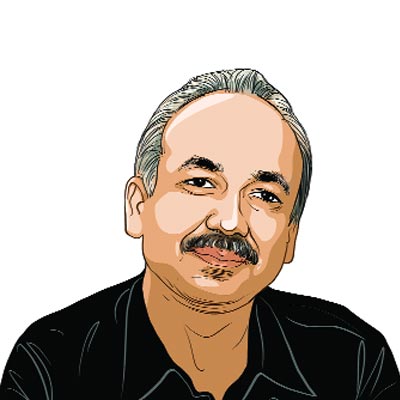Opinion Running in place
Nepals politicians may fail to meet yet another deadline
The weekly Ghatana Ra Bichar said a week in advance: Prime Minister Jhalanath Khanal to fall sick on August 6. And Khanal skipped the scheduled meeting of the Central Committee of the Communist Party of Nepal-Unified Marxist Leninist (CPN-UML),the party he heads. The committee was to discuss his alleged breach of discipline by inducting nine Maoist ministers into his cabinet a week ago,overruling the party directive. Feigning illness and skipping predictably hostile meetings has been a norm among Nepali leaders,and Khanal has done so many times in the past. Some vocal CC members,including former Deputy PM K.P. Oli,who lost the race for party leadership to Khanal two years ago,are seeking action against a defiant Khanal.
In the midst of all this,Prachanda,chairman of the Unified Communist Party of Nepal-Maoists (UCPN-M),declared that Khanal will be stepping down on or around August 13,giving hope to many prime ministerial aspirants. But the new leader has to be elected by a majority of the 601-member legislature; with almost every major party in the hung House going through deep internal rifts,there is every chance of Khanal continuing as caretaker PM,at least for some more months.
While Khanals exit would not weaken the formidable consolidation of the radical left that he and Prachanda together forged since February,the stalemate could inject more uncertainty into the derailed and delayed peace and constitution-making process. Through a previous agreement on May 28,the government and the three major parties UCPN-M,CPN-UML and the Nepali Congress had promised to complete vital parts of the peace process,mainly rehabilitation and integration of about 19,000 Maoist combatants,and come out with the first draft of the constitution by August 31. But things have not moved beyond some Maoist combatants assigned as private security,for about a dozen senior Maoist leaders,moving to the designated cantonments and depositing their arms there. A powerful lobby among the Maoists,led by senior Vice Chairman Mohan Baidya Kiran,feels that dispensing Maoist combatants from their security ring will expose them to threats from within and outside,and has continued to retain the private security system.
While Prachanda has assured the international community that they need not doubt the Maoists commitment to the peace process,Maoist leaders like Baidya say that Maoist combatants should not only be part of the proposed new force,consisting of existing security outfits and the combatants,but that the former rebels should also head it.
This,and the non-implementation of many other provisions of the Comprehensive Peace Agreement,make the progress card too unsatisfactory. The main opposition,the Nepali Congress,although divided,is getting more and more rigid that the term of the House should not extended beyond August 31 under any pretext,something the radical left has made a prestige issue.
Of late,the Nepali Congress seems to have realised that it is simply succumbing to the political course set by the radical groups who have in no way shown any commitment to the peace and the constitution-making process. The deadlock is not helping the economy. Public-sector undertakings have turned into recruitment centres for political cadres. All but five out of 31 government undertakings are in the red. The national carrier,Nepal Airlines,is gasping for want of aircraft. The Janakpur Cigarette Factory,a gift from China that once used to be the highest revenue payer to the government,has been shut down because of political interference. Around 50 industries along the eastern sector are on the verge of an industrial strike at the call of different trade unions,including that affiliated to the Maoists,for a pay hike that would further trigger unrest in the country inflicting a cost on the economy.
Two ambitious hydro-power projects Upper Karnali (900 MW) and Upper Marsyangdi (600 MW),both undertaken by GMR,are in a suspended state following trouble from locals affiliated with Maoists. This could also discourage further investment in the power-starved country despite its rich water resources.
Ironically,politicians are feeling more secure today than ever before,because the major parties have been able to appropriate total immunity for themselves for any corruption or wrongdoing. But for that,they need the continued existence of the constituent assembly as that will give them the status of peoples representatives.


